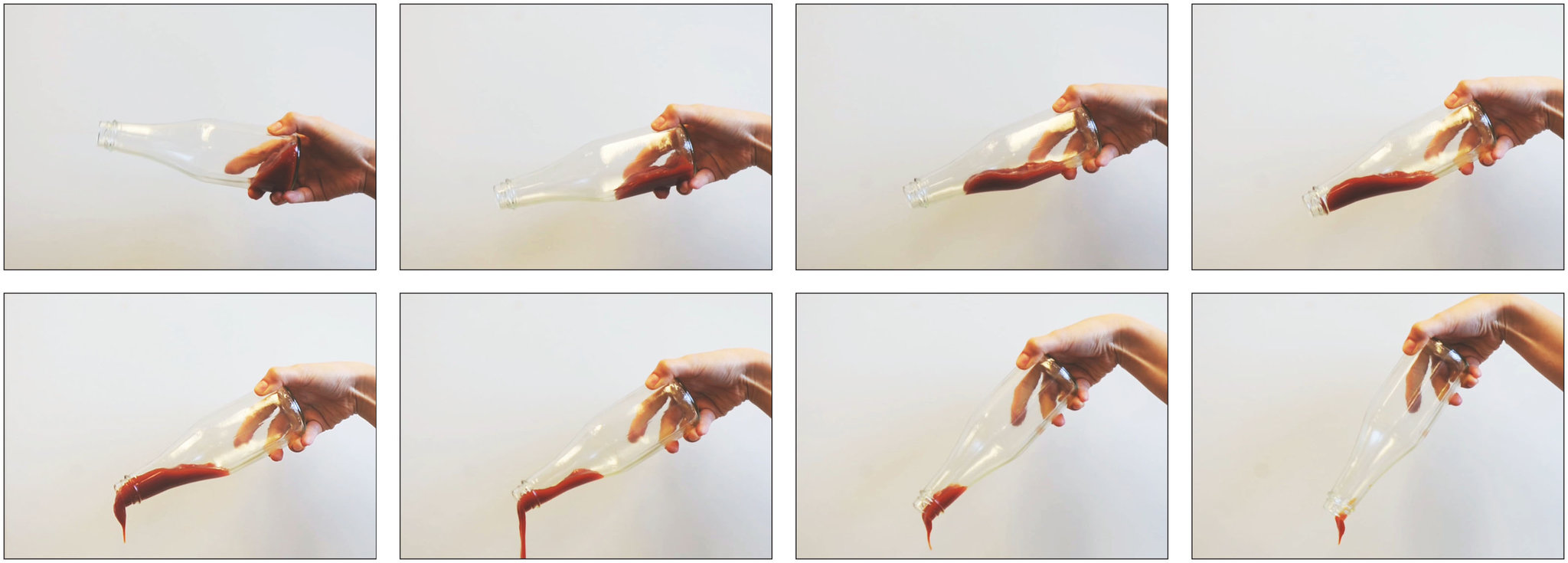LiquiGlide, a company started by Kripa K. Varanasi, a professor of mechanical engineering at M.I.T., and J. David Smith, a graduate student of Dr. Varanasi’s, has developed a non-stick coating which traps a lubricant on a rough surface. Similar research has been done using superhydrophobic surfaces, where air is trapped on the rough surfaces, allowing liquids to flow past. When liquids flow, the layer in contact with a surface sticks, creating a more viscous fluid. This can be seen in pipes, where the liquid on the edge flows slower than the liquid in the center. The technology can be applied to highly viscous materials called Bingham plastics, materials which require a force to flow. Using trapped air has been effective but the microscopic surfaces in which they’re trapped can become damaged, allowing liquid to displace the air and creating more viscosity. Air may also dissolve into the liquid when submerged for a long period of time. LiquiGlide develops a lubricant specifically for the liquid, using a theory to predict interactions among the surface, the lubricant and air. The lubricant binds more strongly to the textured surface than to the liquid, allowing the liquid to slide on a layer of lubricant. The textured surface keeps the lubricant in place. Dr. Varanasi originally began his research into industrial challenges like preventing ice from forming on airplane wings and allowing more efficient pumping of crude oil and other viscous liquids. But recently LiquiGlide announced that Elmer’s Products Inc. had signed an exclusive licensing agreement for the use of their coatings in glue containers, and has licensed its technology to an Australian company to be used on the inside surface of paint can lids.

